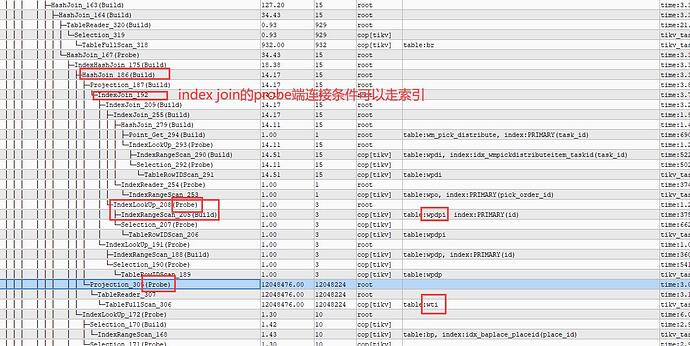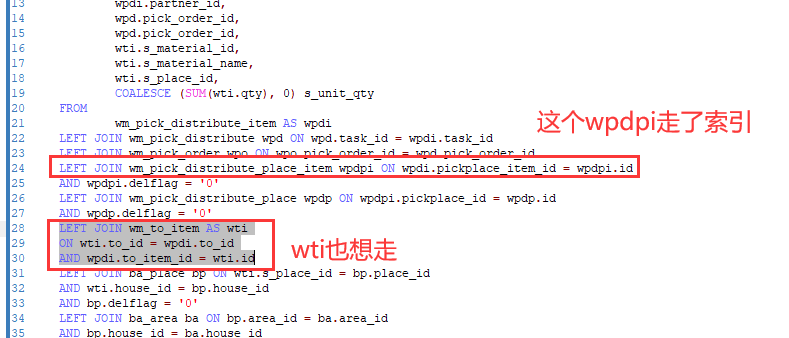Note:
This topic has been translated from a Chinese forum by GPT and might contain errors.
Original topic: 复杂sql如何hint,指定某一个连接算子为index_join
[TiDB Usage Environment] Production Environment
[TiDB Version] 5.3.2
[Issue Phenomenon and Impact]
In a complex SQL query, it was confirmed that the bottleneck of the query time lies in a certain left join table, which performs a full table scan of 10 million rows each time (without filter conditions), resulting in high time consumption. However, the join condition of this table has an index. It was also confirmed that another sub-joined table also has no filter conditions (4 million rows), and it behaves similarly. But in the execution plan, it uses the index as the probe side of the index join.
[Attempts Made]

No effect
You need to enable clustered index.
Are you referring to creating a composite index on the two join conditions of the wti table? It has already been created.
Could you please provide the operator info after the hash join?
left outer join, equal: [eq(k3_wms.wm_pick_distribute_item.to_item_id, k3_wms.wm_to_item.id) eq(Column#703, Column#704)]
Check the type of to_id in both tables. It would be helpful if you could provide the SQL text and execution plan text.
You can try adjusting the order of the composite index; different orders may generate different execution plans.
Confirmed that there is a mismatch in the field types of a join condition.  I directly removed the mismatched join condition, and the execution plan automatically identified and optimized this part.
I directly removed the mismatched join condition, and the execution plan automatically identified and optimized this part.
I’ve seen this situation elsewhere 
I have optimized this type of SQL on MySQL. The join order of tables will be different with different index orders. Initially, I used hit to test and it executed faster. Then, changing the index order directly generated the same execution plan as hit. 
This topic was automatically closed 60 days after the last reply. New replies are no longer allowed.
 No effect
No effect

